The Land of Olives and Hummus
Israel is often called the land of milk and honey, but calling it the land of olives and hummus is a more accurate description of my time here. I have eaten more hummus in the past month than I have eaten in my entire life, and over the past four weeks my daily life has revolved around olives.
Returning from Jordan I wanted to spend more time in Israel. I searched for a kibbutz to volunteer at, but was largely unsuccessful as every kibbutz wanted a 2+ month volunteer and didn’t have spots available until 2015. I gave up and went to apply for a visa to India only to learn that it may take a few weeks for my visa to be ready instead of the 3-4 days I read about.
Faced with a few weeks I tried to again to find somewhere to spend my time. My friend Noam, one of the Israeli soldiers from my birthright trip, reached out and helped me get the number for a kibbutz near her home. After having a brief phone call with Dani, the man in charge of the olive operations at the kibbutz, I was invited to come volunteer.
Kibbutz Gezer
Halfway between Tel Aviv and Jerusalem sits the kibbutz called Gezer. The kibbutz was originally established in 1945 and was named after Tel Gezer, an old Canaanite city-state that is situated behind the kibbutz. During Israel’s war of independence in 1948, the kibbutz was sacked. It wasn’t until 1974 on July 4th that the current Kibbutz Gezer was formed.
Gezer in the distance, seen from the top of Tel Gezer.
A kibbutz is a communal settlement in Israel that typically includes a farm. In the past, members of a kibbutz worked equally and received an equal share of housing, food etc. Everyone would eat together in a dining hall and children would spend the night together in the children's house instead of at their parents. Over the years the majority of kibbutz have become less communal and have a adopted a more private lifestyle. Here is more information on the
The Kibbutz
The morning after the first phone call I arrived at Gezer. I met Dani and the crew in the orchard, set down my bag, and immediately began picking olives off the trees. We lay out two long tarps along both sides of a row of trees to catch the olives we pick. After the trees have been picked clean we gather the olives up by lifting the sides of the tarp to pool the olives together. After picking out more of the leaves and twigs we pour the olives into boxes that will be brought to the olive press to be made into oil.
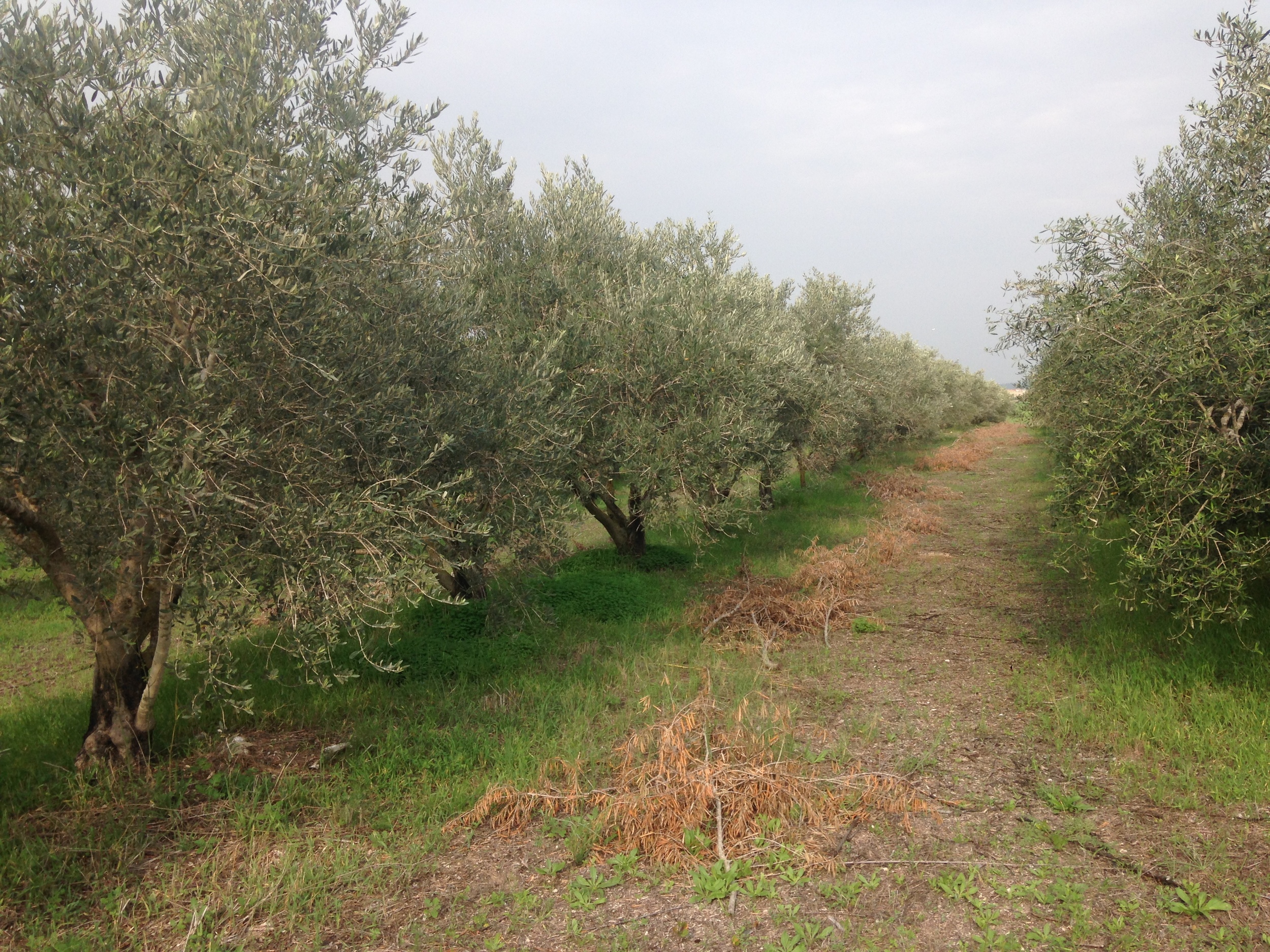
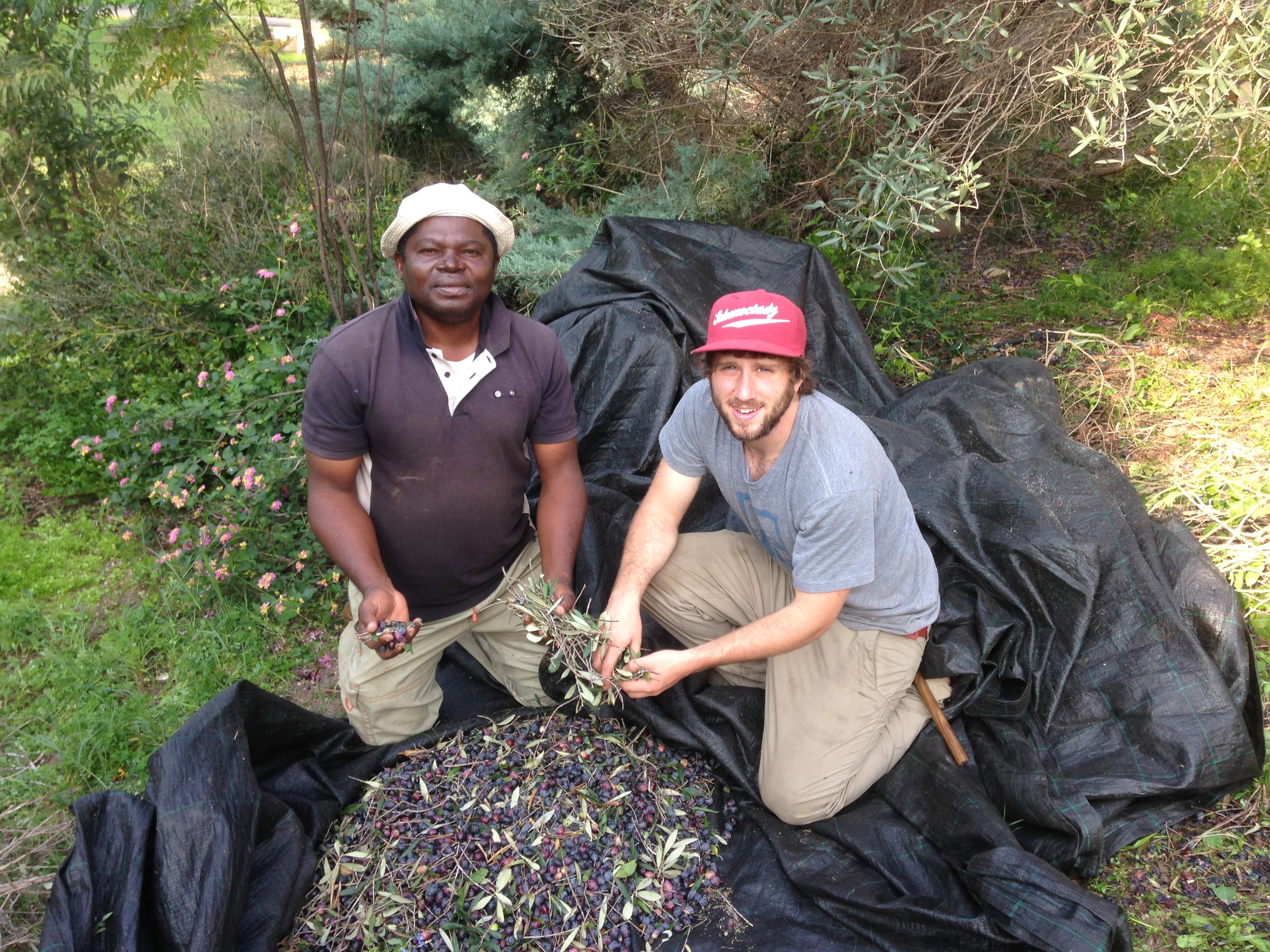
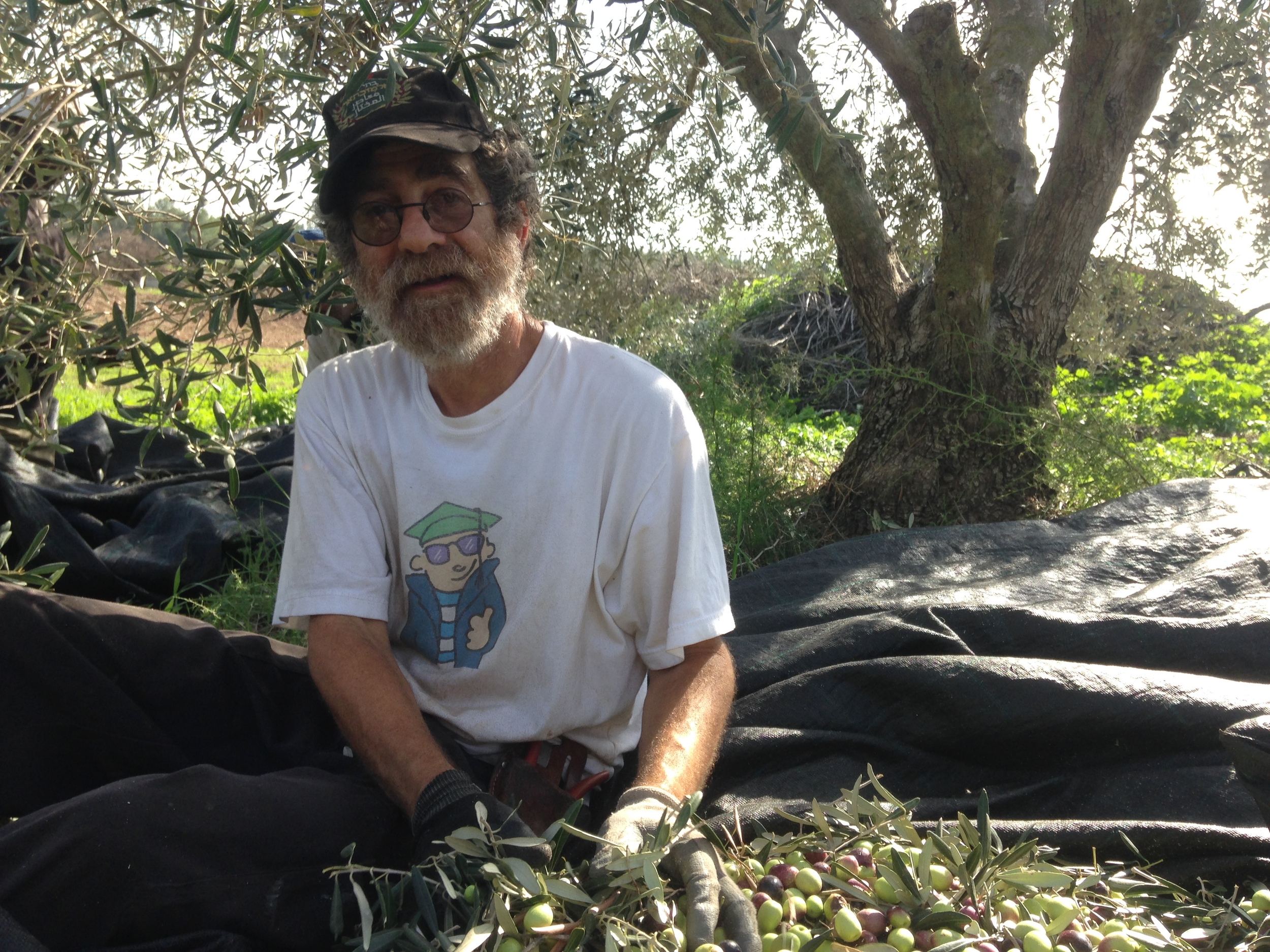
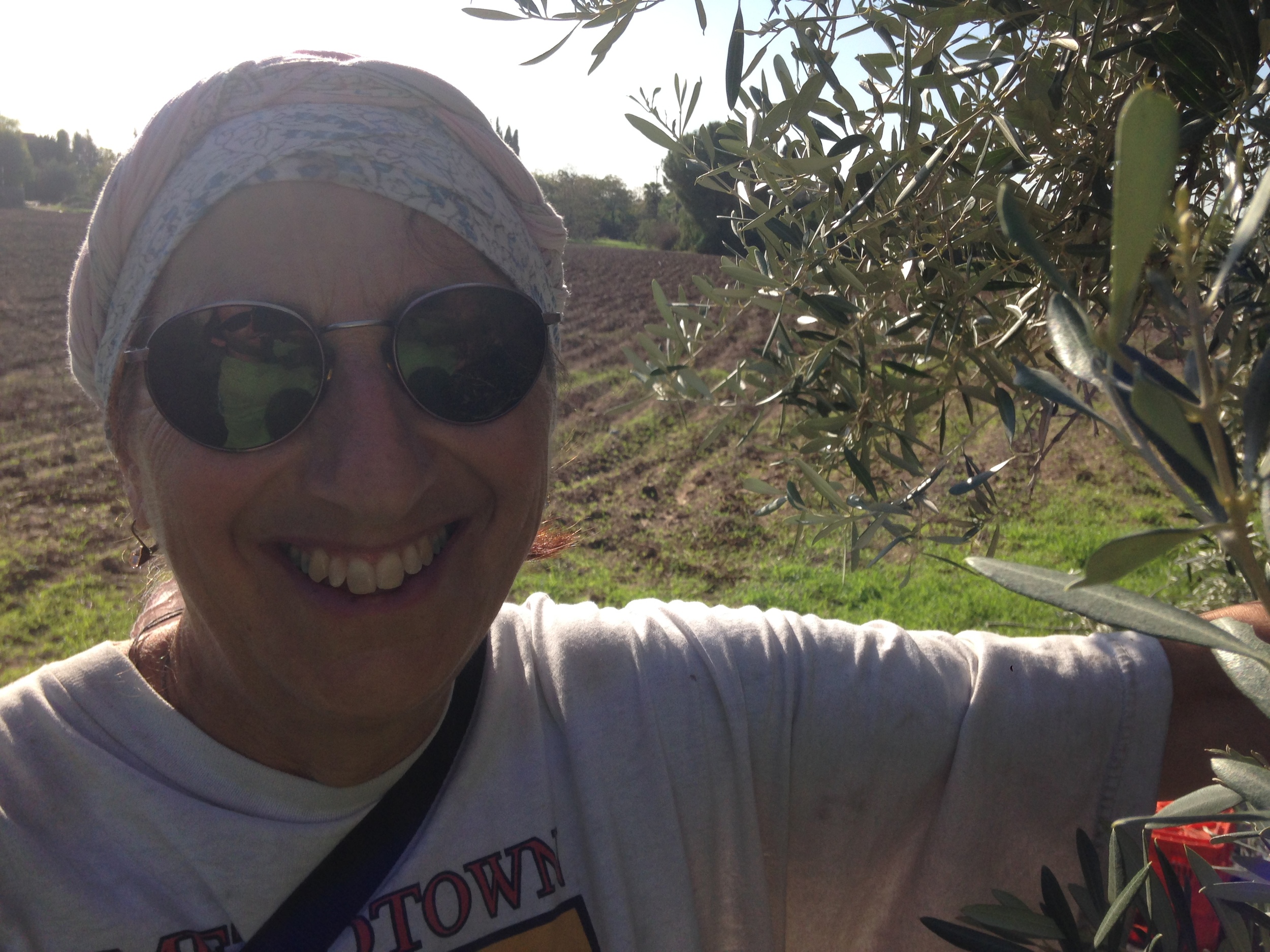
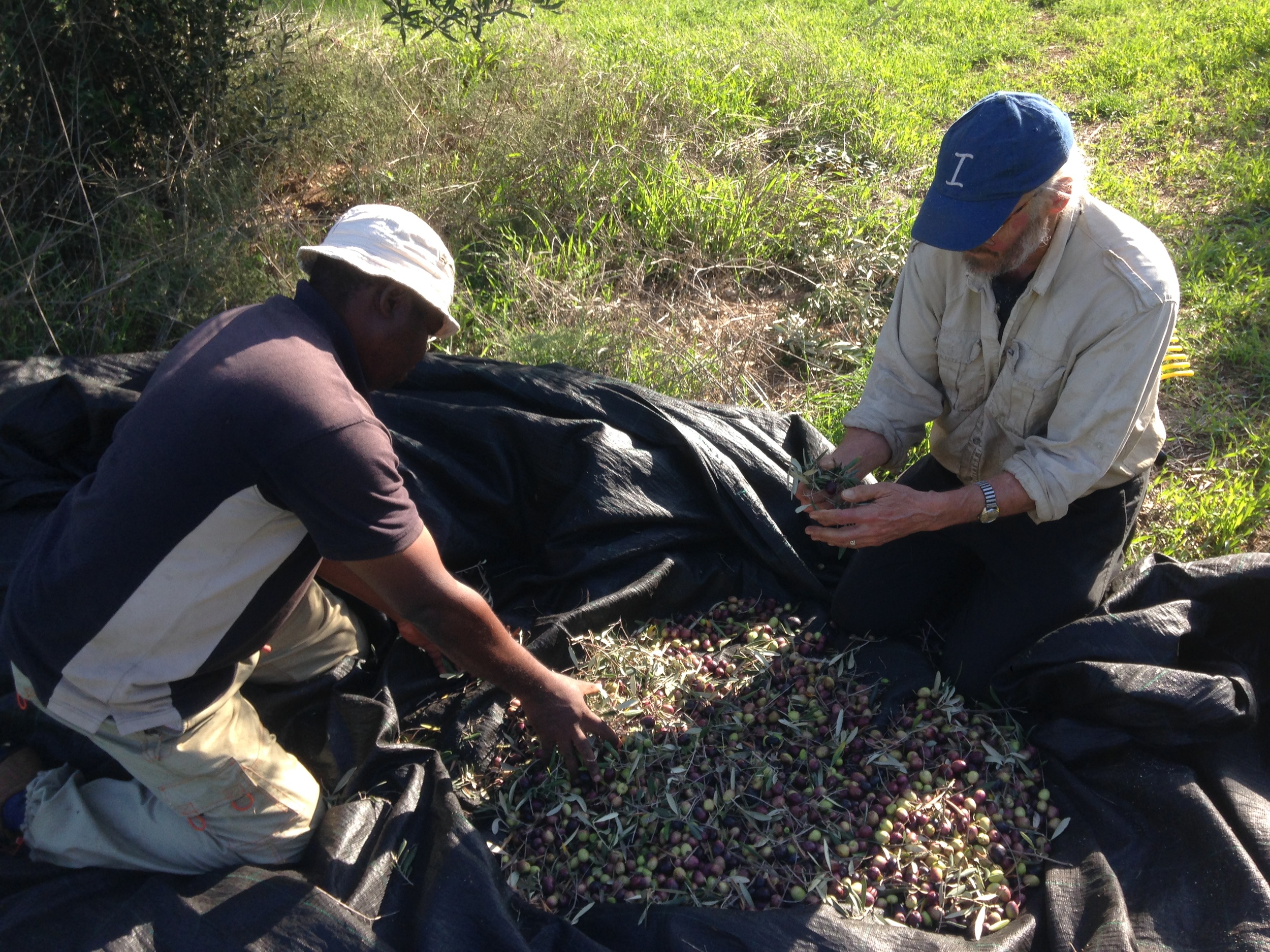
I only caught the final week and a half of olive picking, but the season yielded 12,400 kilos of olives, which produced 2.5 tons or approximately 2,500 liters of olive oil. It took about 5 kilos of olives for every liter of oil produce. Spending six hours a day working outside with my hands, surrounded by good people, was rewarding work. I don't know too much about olive oil, but I ate it everyday and thought it was great.
*If you want some Gezer olive oil for yourself you can pay $25 to receive a bottle and shipping is included. You can check out the Gezer olives website and order by contacting Dani through the website.
Our bountiful breakfast consisting of: bread, hummus, cottage cheese, olives, peppers, cucumbers, tomatoes, onions, hot peppers, oranges, and apples.
The olives returned to us in oil form.
Gezer olive oil ready for cooking and eating.
Picking the olives is actually only half of the work. To make sure you have a good yield of olives the following year you need to prune the trees. This means getting rid of dead branches, clearing out branches and growth in the middle of the tree, thinning the outside branches, and cutting down limbs growing straight up and out of reach of where they can be picked.
I spent three weeks pruning the trees and helped finished all but about 5 rows of trees in the orchard. Picking olives was extremely rewarding, especially when the casks of oil would come back from the press, but pruning the trees quickly became my favorite activity. There is something very calming and meditative about approaching a tree, cutting away the dead limbs, and shaping it to promote growth and olive production for the following year. It was easy to clear my mind and only focus on myself and the tree and each day time just flew by while pruning the trees. The work made me want to get a little bonsai tree.
Throughout all of the work, picking and pruning, there were always great conversations going on between everyone working. I received sound marital advice (though I'm not sure when I will ever need to use it). I learned more about life on a kibbutz and how things have changed over time. The most enjoyable parts were when I learned about the people I was working with, sharing jokes, and exchanging tales of our lives.
Biyiha, Dani, Mickey, Ruth, and Jan. The core olive crew during my time at Gezer.
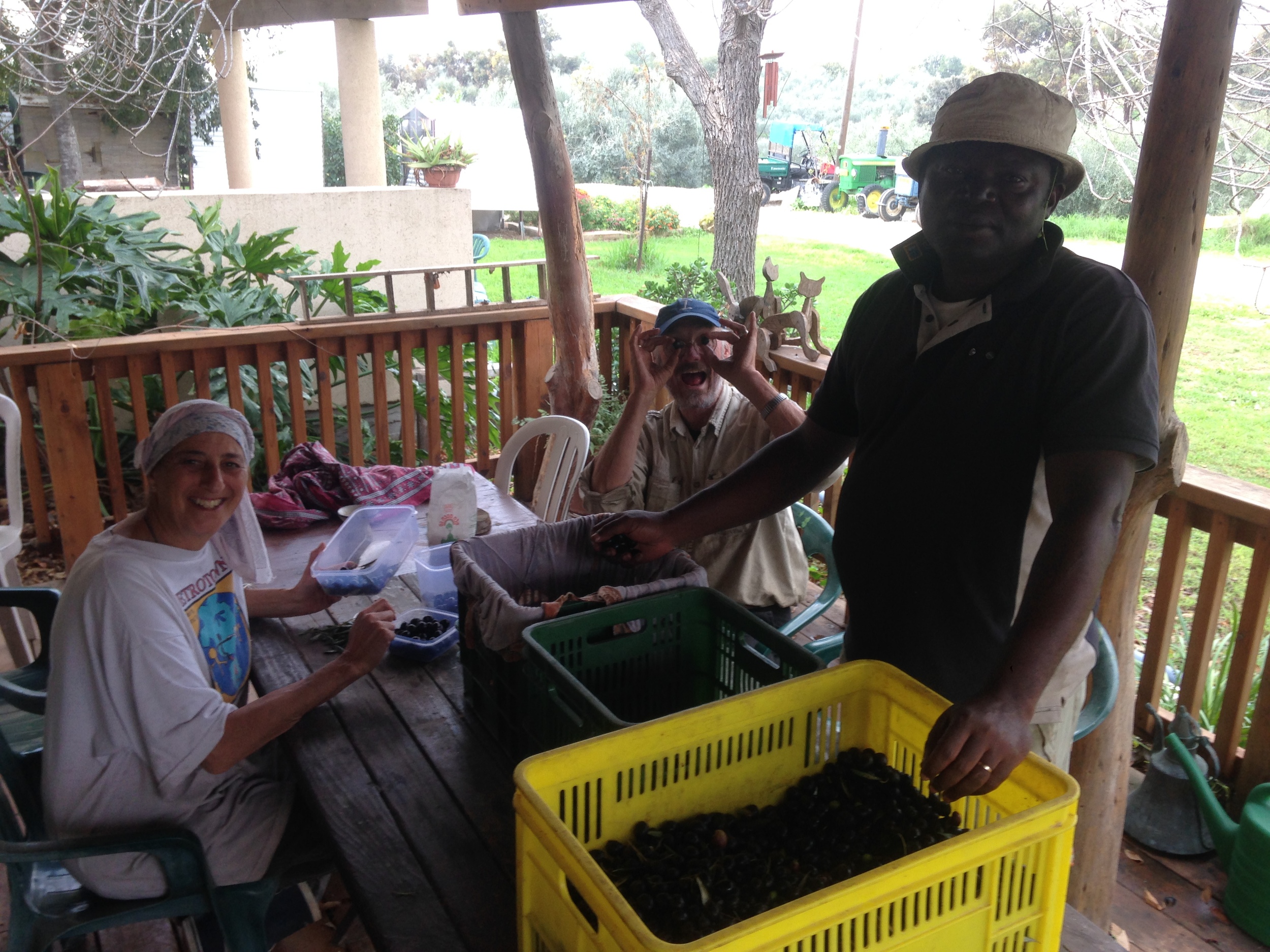
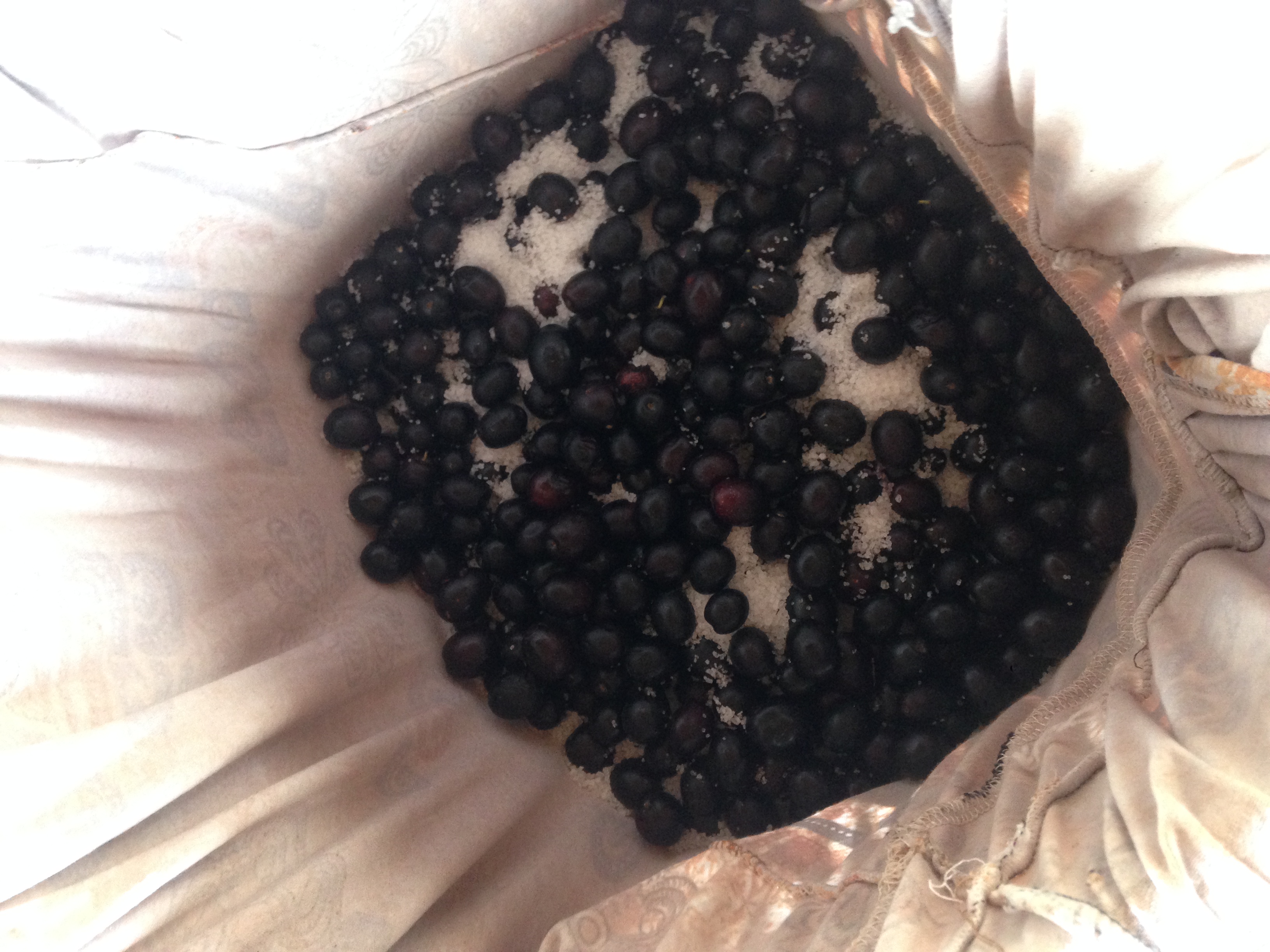
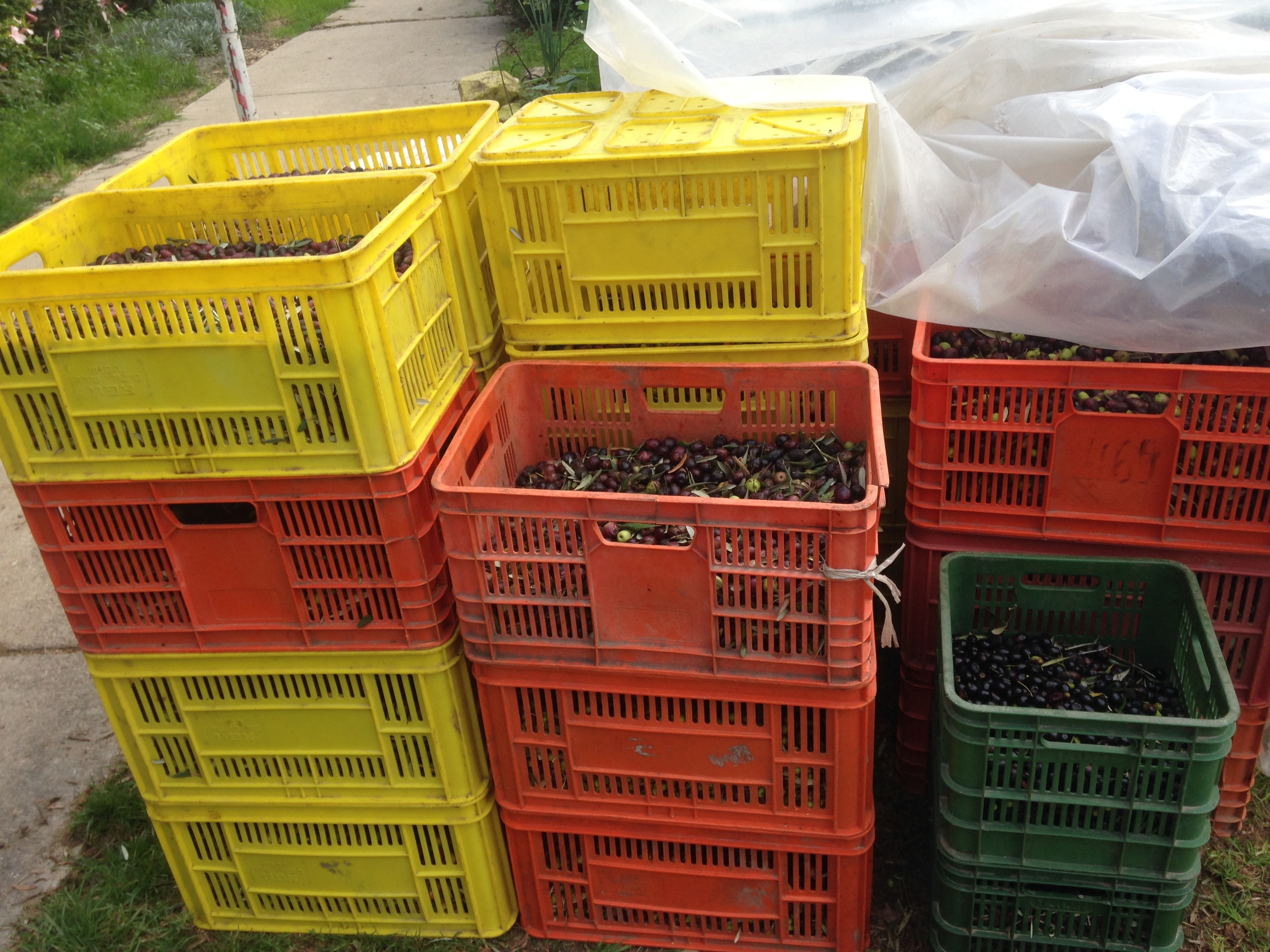
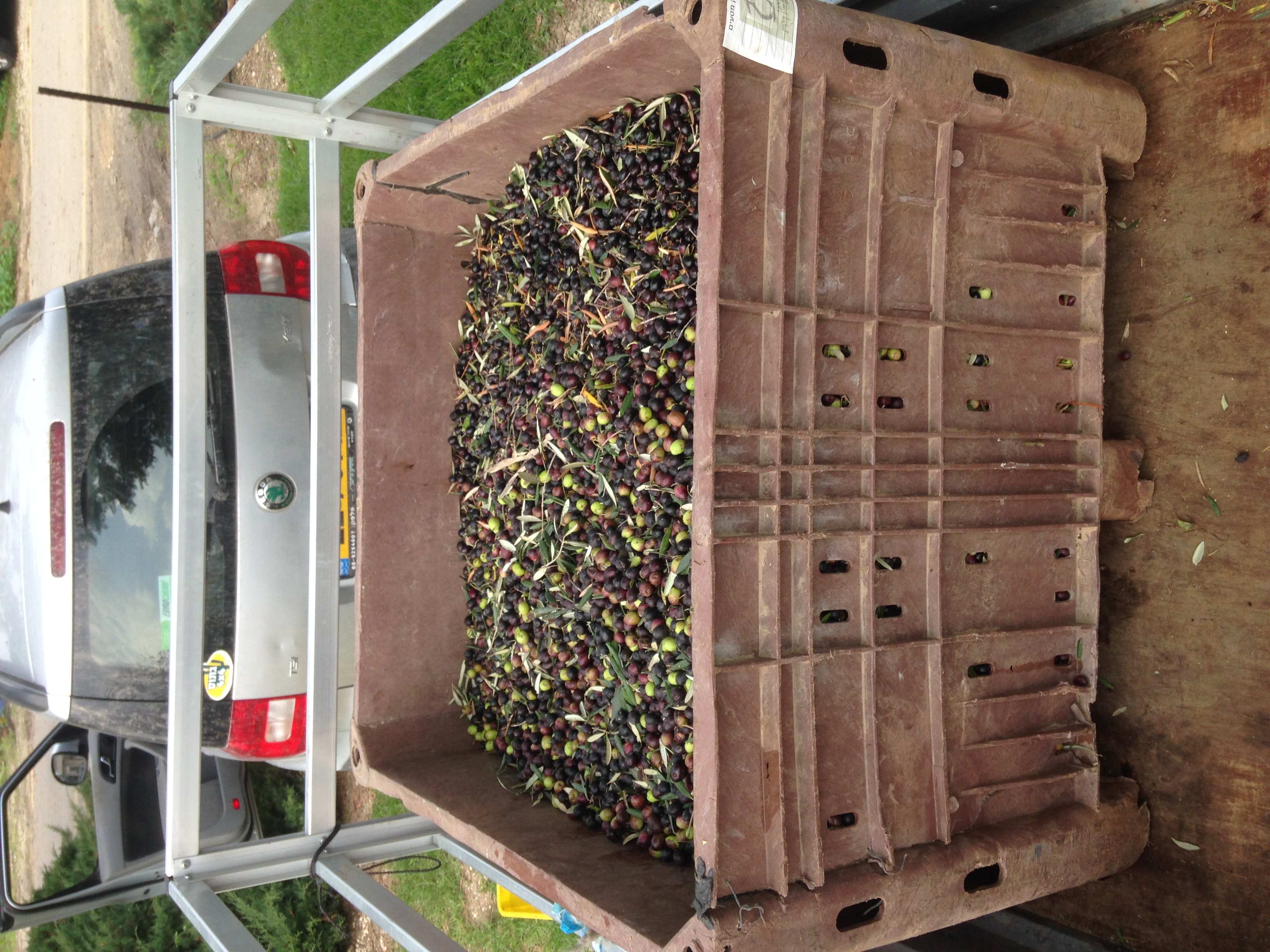
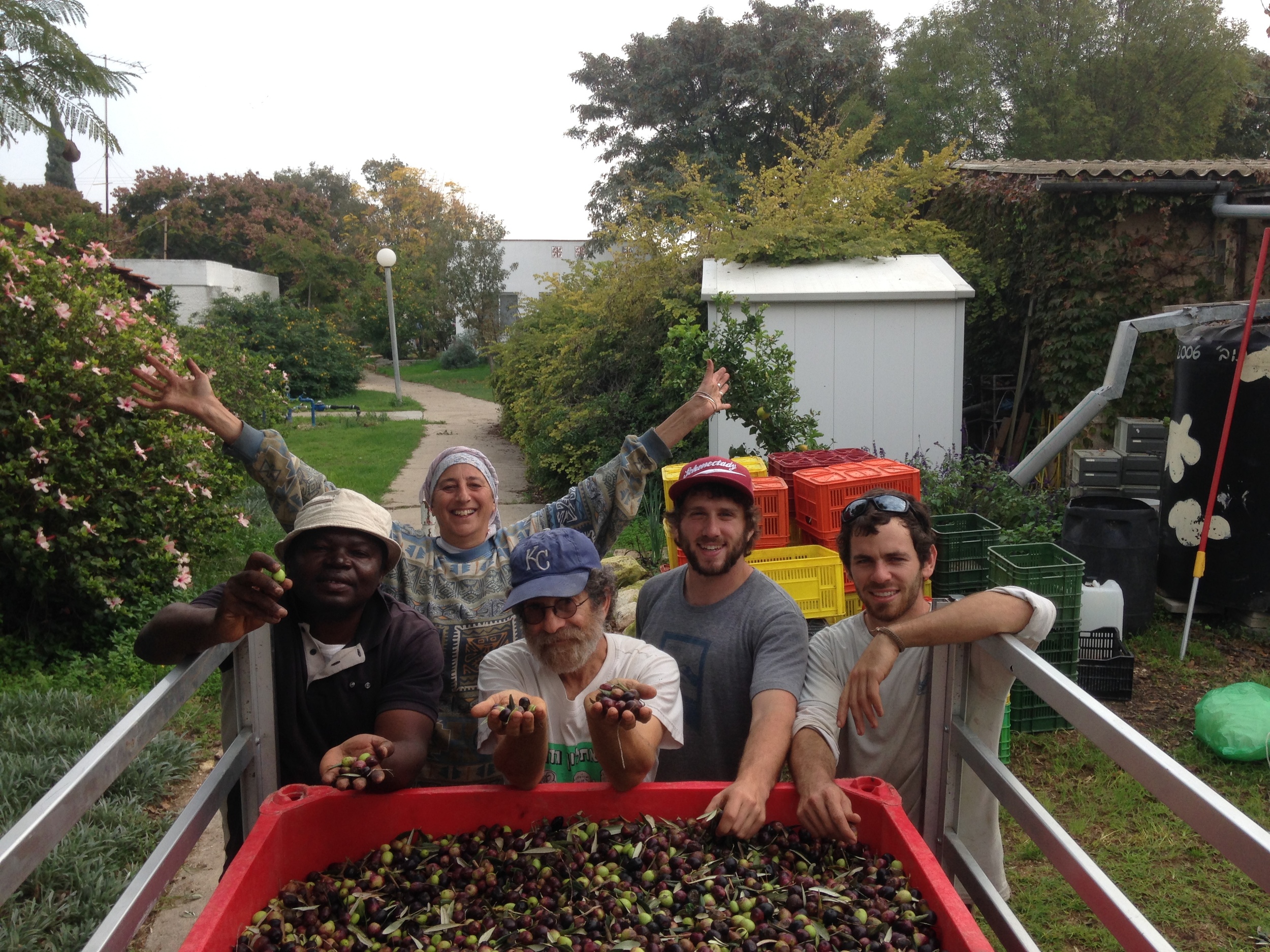

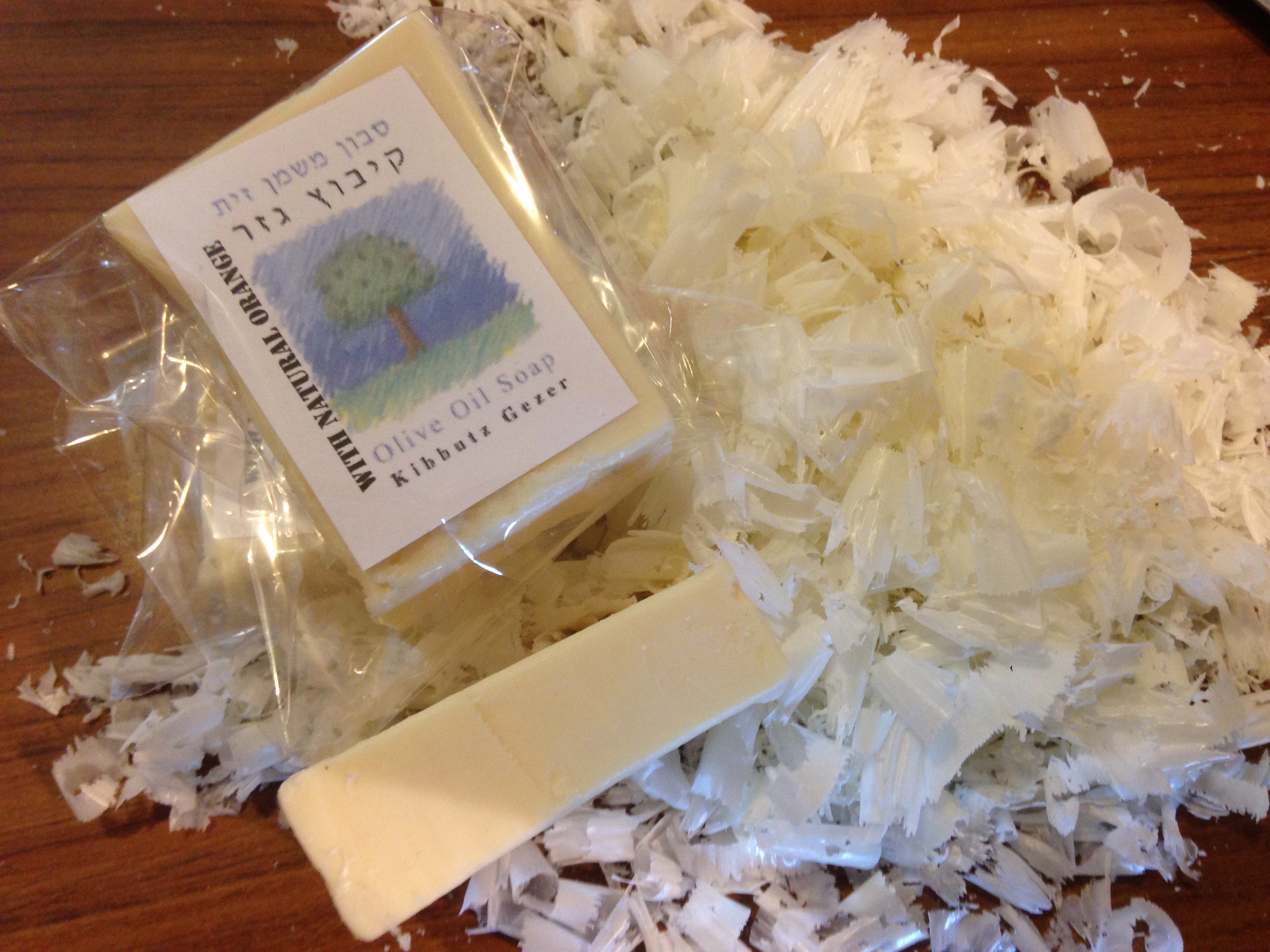
Living on the Kibbutz
For the first week and a half I shared a little apartment with an agricultural engineer, Biyiha, from Cameroon. He is currently working on a program to start the production of wheat in Cameroon and hopefully plant olive trees as well. He came to Israel to learn about olives and make connections with Israeli wheat breeders. His passion and love for his country would shine through his words as he spoke about Cameroon producing its own wheat instead of expensively importing it from abroad. After our time together Cameroon is definitely on my travel list, maybe I'll even be able to go help out on one of Biyiha's wheat farms.
The same night that Biyiha left to return to Africa I also had to leave the apartment because the original resident of the apartment was returning from traveling abroad. At this point I had already stayed longer than the one week I had discussed with Dani. Yet, it didn't look like my visa would be processed anytime soon. Dani had invited me to stay longer but couldn't provide housing due to the lack of space available. Luckily, one of my neighbor's, Nate, offered to share his apartment with me.
Nate was one of many people close to my age that I would spend time with on the kibbutz. He is currently in school studying international relations and also working for a security company in the nearby town of Ramla. When he wasn't working or studying we would jam together on his guitars, talk about differences between the US and Israel, and discuss religion and the many conflicts that face Israel. His hospitality was amazing and he always made sure I had everything that I needed.
Me and most of the crew. Itai, Nate, Golan, Lia, Yonatan, and Mickey.
Trip to Makhtesh Ramon
During one of the weekends I made a trip to the Makhtesh Ramon crater in the middle of the Negev Desert in the south of Israel. Not formed from the a meteorite impact, a makhtesh is formed over a course of hundreds of millions of years by water and other climatic forces. The crater is the world's largest makhtesh at 40 km long, 2-10 km wide, and up to 500 meters deep. It is a beautiful place with many scenic hikes through the area.
Looking down into Makhtesh Ramon
A Home in Israel
I never planned on staying at kibbutz Gezer longer than 1-2 weeks, but my visa ended up taking over four weeks to be processed. I am extremely grateful that I had the opportunity to stay in Gezer the entire time. The extra time I spent waiting for my visa has made me more excited than ever to get to India. The extra time has also given me the chance to better get to know many of the members of Gezer. Returning to this place in the future to spend time with the amazing group of people here and work again in the olives is a definite possibility. I encourage anyone who is interested in volunteering in Israel to consider Gezer.
Next stop, India.







